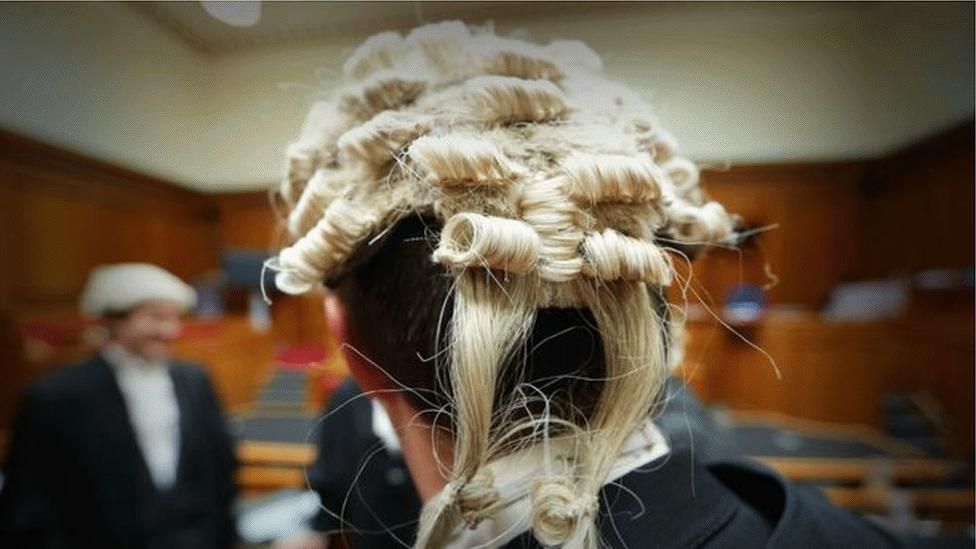Lawyer boycott of juryless rape trials 'to be unanimous'
- Published
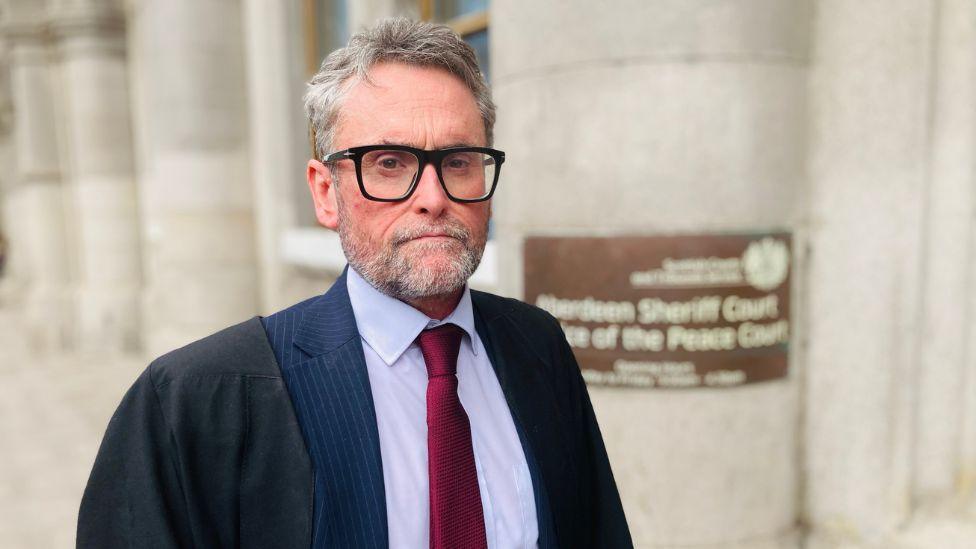
Stuart Murray, vice president of the Scottish Solicitors Bar Association, says lawyers have been "ignored" by the Scottish government
Lawyers across Scotland are expected to join a near "unanimous" boycott of a pilot scheme for juryless rape trials.
Stuart Murray, vice president of the Scottish Solicitors Bar Association, said at least seven bodies had voted against the government proposals.
Legal professionals have said the scheme, proposed to tackle low conviction rates, could undermine the judicial system.
First Minister Humza Yousaf has defended the plan.
He pointed to a "weight of evidence" that juries are affected by rape myths and misconceptions.
The pilot was proposed by Scotland's second most senior judge, Lady Dorrian, in a review that informed the Victims, Witnesses and Justice Reform (Scotland) Bill.
It would see anyone accused of rape or attempted rape stand trial before a single judge or sheriff, who would decide whether or not they are guilty.
In the most recent figures, conviction rates for rape and attempted rape were 51%, compared with 91% for all other crimes.
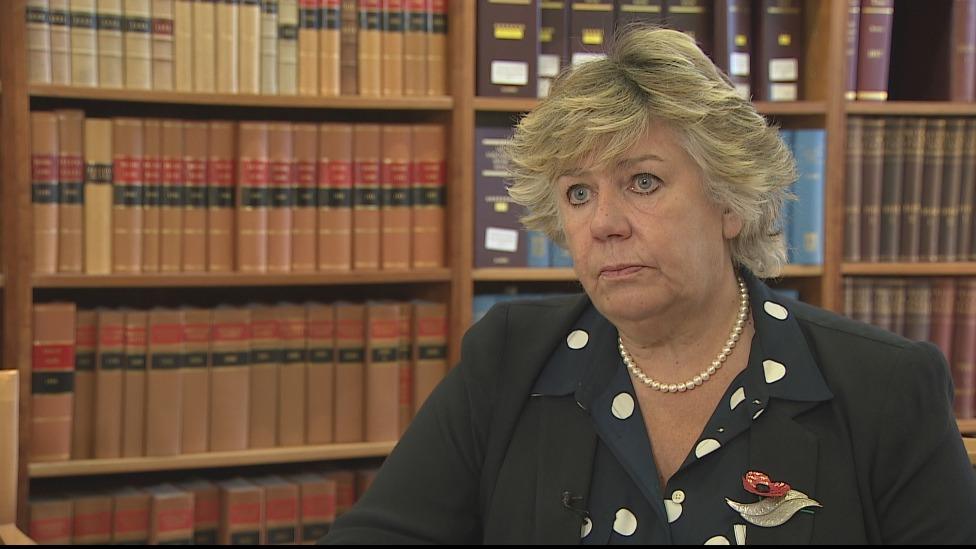
The change to trials was proposed by senior judge Lady Dorrian
The Scottish Solicitors Bar Association represents criminal defence solicitors across the country.
Mr Murray, who practices in Aberdeen, spoke out against the pilot scheme after the Aberdeen Bar Association confirmed it was joining Glasgow and Edinburgh associations in a boycott.
He told the BBC's Good Morning Scotland programme that associations in Dundee, Airdrie, Falkirk and Paisley had also joined the backlash.
"It is spreading, there are now seven or eight that have come out in the last week or so, just of bar associations across the country," Mr Murray said.
"There are more votes within the various bar associations across the country in the next week or so. I've no doubt it will be effectively unanimous across the bar associations."
'Knee-jerk reaction'
The lawyer said he hoped the boycott would put an end to the scheme, but said he could not say for certain because the Scottish government was "so unpredictable".
He said lawyers had responded to "a knee-jerk reaction from the Scottish government - a blatant attempt to increase conviction rates".
Mr Murray blamed shortcomings in pre-trial investigations for lower conviction rates.
"There are substantial failings which are highlighted in Lady Dorrian's review of the lack of communication from the Crown, lack of involvement with the police, matters being delayed at an investigative stage, all issues which impact on the conviction rate," the lawyer said.
"The way to deal with this is not to remove a jury of your peers."
He said rape cases are also "more intimate" and typically lack evidence such as CCTV footage and extensive witness testimony, leading to lower conviction rates.
Mr Murray said the scheme would hamper efforts to diversify the legal system, and countered the Scottish government's point that 80% of trials already took place without a jury.
He said: "That's a slightly disingenuous point. Those trials are lower level, consist mainly of minor assaults, shoplifting, cases that are far less serious than cases involving sexual offences."
He echoed concerns about the Scottish review of rape trials lacking relevant evidence, with rules prohibiting researchers speaking to former jurors.
"There's been almost no investigation or review carried out in relation to the pilot scheme in Scotland," Mr Murray said.
"The Scottish government is going about this in entirely the wrong manner and rather than engaging with the profession, they are ignoring the profession."
'Experimental guinea pig'
The dean of the Faculty of Prosecutors and Solicitors in Dundee confirmed the group had unanimously agreed to boycott the scheme.
"The crime of rape is a high court matter which has to prosecuted and defended expertly," a statement read.
"It is not in the accused's best interests to be an experimental guinea pig for such a serious matter."
Justice Secretary Angela Constance said she was "determined to proceed in partnership" with lawyers, adding it was "quite simply not true" that the government has ignored the legal profession.
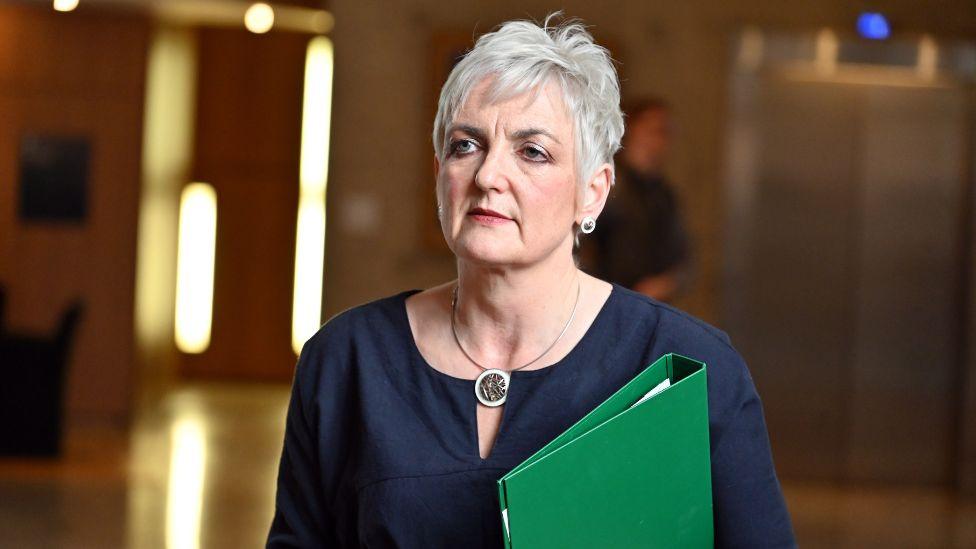
Justice Secretary Angela Constance has rejected claims the government has ignored lawyers
She told BBC Scotland there is "overwhelming" evidence that juries have misconceptions about rape.
"There is international evidence, 50-plus studies most of which have taken place in the past 20 years, that demonstrates the diversity of juries does not overcome unfair influences," the minister said.
She insisted the legal profession, victims and academics would be consulted as part of the parliamentary process.
"No part of the system is beyond scrutiny, including court processes," she said.
'Legitimate grounds'
Ms Constance added: "I think we have legitimate grounds to have concerns and we have legitimate grounds to proceed with a pilot.
"But it is important that we engage with all the voices and that's part of our parliamentary and democratic process."
The proposal for juryless trials have been welcomed by victim support group Rape Crisis Scotland, which has warned too many women are being let down by the justice system and too many rapists are walking free.
Chief executive Sandy Brindley said: "What we all want is a system where we can be confident that the evidence being heard in rape trials is being assessed fairly and objectively, and isn't influenced by false assumptions or attitudes towards women.
"Everyone has the right to a fair trial but that does not automatically mean a jury trial. A single-judge trial is still a fair trial."
Related topics
- Published8 May 2023
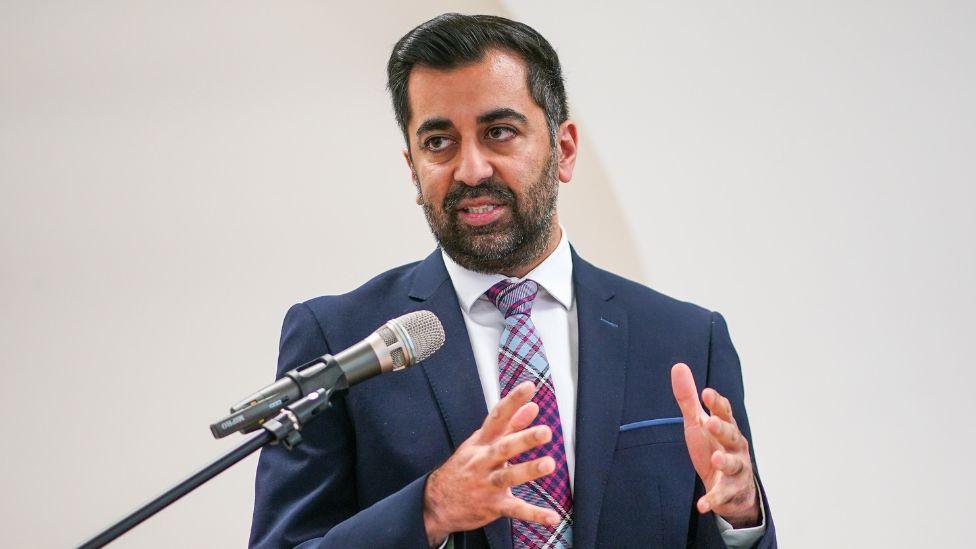
- Published4 May 2023
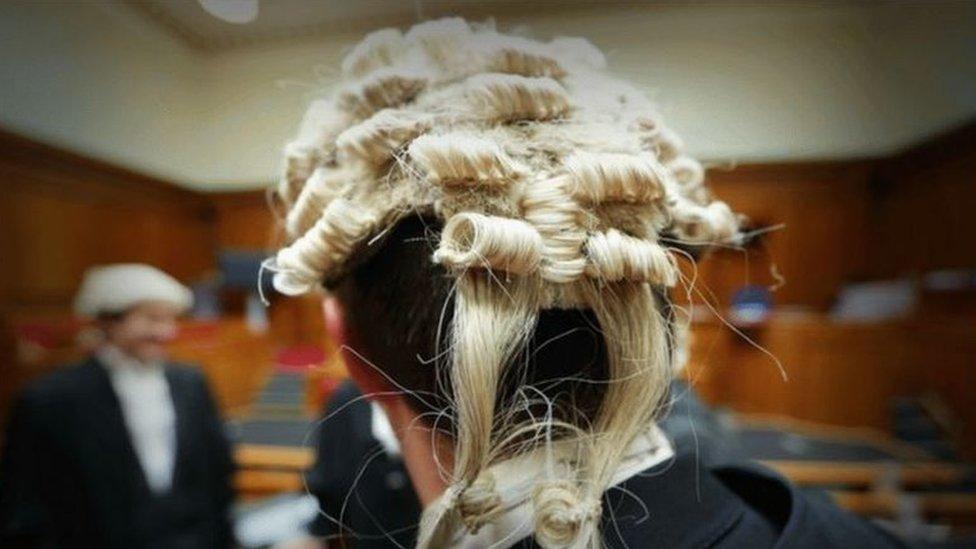
- Published26 April 2023
